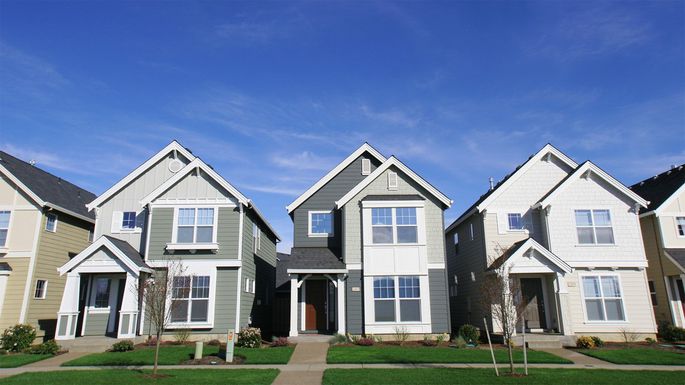Home shoppers weigh a laundry list of factors before purchasing a single-family home or condo. Location, price, size, and style are all taken into consideration. But for some, a home in a community with a homeowners association, or HOA—a board of residents who help ensure that your community looks its best and functions smoothly—could either sweeten the pot or be a major deal breaker.
Want to know what makes buyers swing one way or the other? The following insights will illustrate the best and worst qualities of HOAs and help you decide if living in this type of community is right for you.
Pro: HOAs maintain the common areas
Your community’s HOA will be responsible for handling all maintenance of common areas and repairs for the amenities outside of your home. It’s perhaps the biggest perk of living in an HOA community.
“Based on maintenance fees collected, an organized HOA maintains a comfortable balance in their fund to offset maintenance costs or unexpected issues that need to be fixed,” says Drew Scott of HGTV’s “Property Brothers” and co-founder of Scott Brothers Global.
An HOA’s level of involvement varies and might depend on the type and size of the community.
“The HOA will take care of the common areas like the pool, clubhouse, walking paths, or other amenities that provide value to the residents.”
Con: You have to pay recurring HOA fees
If you move into an area with an HOA, membership is mandatory and so are the monthly or annual fees.
“The fees can change, based on decisions that you don’t have total control over,” Golden says. “Fees can also be a detriment to resale if potential buyers don’t want that extra cost in addition to their house payment.”
So, how much can homeowners expect to pay? It varies depending on your location and how expensive your house is.
The listing agent will be able to tell you exactly how much HOA payments will be.
Pro: HOAs help keep uniformity
Each HOA has its own declaration of covenants, conditions, and restrictions, or CC&Rs, which explain what homeowners can and cannot do—this includes streamlining the appearance of each property.
“Your neighbors can’t paint their house bright purple or put an unsightly addition on the front of their house,” Golden says. The CC&Rs make sure “the community retains the look and feel of the way it was built.”
Other common no-nos are parking vehicles on the lawn or keeping inoperable vehicles in the driveway.
“You won’t have to worry about that one neighbor that has decided to let his front yard grow into a wild jungle,” says Golden.
“Ultimately, the HOA helps the homes within the neighborhood retain their value,” Garrett says. “When there are rules and guidelines governing how homeowners should keep their property’s appearance, it helps keep the neighborhood looking desirable for the consumers perusing the neighborhood in search of a new home.”
Con: There’s a lot of red tape
Building that new second-floor addition will be especially difficult in an HOA community. Why?
Any exterior modification—even a minor one like a play area for your kids—has to be approved by the HOA.
You must submit plans describing the height, colors, location, shape, and materials to the HOA board for approval. “This can really slow down the process or limit the type of work you can do,” Scott says.
Ferguson says the approval process can be downright unreasonable. “It once took my HOA nine months to approve a basketball hoop that had already been approved by them for the previous owners,” he says.
Pro: HOAs mediate problems on your behalf
An HOA can also reduce conflicts and unpleasant exchanges. If your neighbors haven’t cut their lawn in several weeks, or decide to turn their driveway into an auto repair shop, you don’t have to confront them because the HOA will. When anyone is engaged in activity that violates the CC&Rs, the HOA sends a friendly notice and follows up with a stern warning.
Con: They can be overbearing
Remember those CC&Rs? While they come in handy for preventing rowdy college students from moving in, they also might be off-putting for homeowners who like their autonomy.
“Many folks believe that buying your own home should give you the freedom to make the changes you want to make and express your own individuality,” Golden explains. “They don’t want decisions about their own home made by a committee.”
HOA-mandated restrictions can be set on swimming pools (e.g., in-ground swimming pools can be built in the back of the house, but above-ground pools are prohibited), pets (e.g., they’re are allowed, but they can’t be bred or kept for commercial reasons; livestock or poultry are not allowed without permission), and rentals (e.g., you might be prohibited from renting out rooms or the entire home). In extreme situations, some HOAs can evict the tenant and hold the homeowner responsible for any eviction costs or any damage caused by the tenant.

